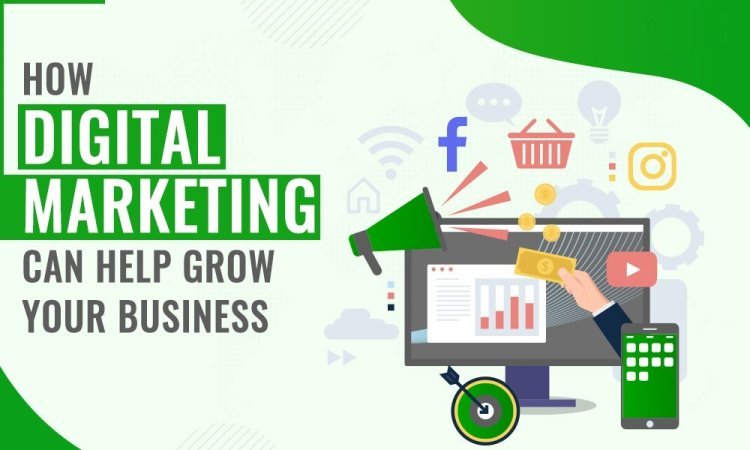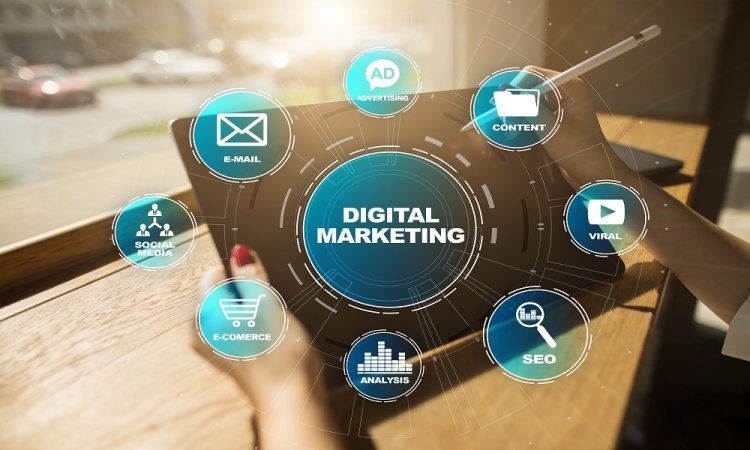How does a Digital Marketing Agency Work?
Discover how a digital marketing agency works, offering services like SEO, content creation, and PPC to help businesses grow and achieve online success.
Digital marketing agencies play a crucial role in helping businesses navigate the complex online landscape. In today’s digital-first world, having a robust online presence is not just an option; it’s a necessity. This post will explore the inner workings of a digital marketing agency, detailing the services they offer, how they operate, and the benefits of partnering with one.
Understanding Digital Marketing
Digital marketing encompasses a wide range of online strategies aimed at promoting products or services through various digital channels. Unlike traditional marketing, which relies heavily on print ads, billboards, and television commercials, digital marketing leverages the internet and electronic devices to reach consumers.
1. Importance in Today’s Business Environment
In an era where consumers spend significant time online, businesses must adapt their marketing strategies accordingly. Digital marketing allows companies to engage with their target audience in real-time, providing measurable results and more personalized experiences.
2. Overview of Different Digital Marketing Strategies
Digital marketing includes various strategies such as:
- Search Engine Optimization (SEO): Enhancing website visibility on search engines.
- Pay-Per-Click Advertising (PPC): Running paid ads to drive traffic.
- Social Media Marketing: Promoting products or services through social platforms.
- Content Marketing: Creating valuable content to attract and engage audiences.
Types of Digital Marketing Agencies
There are several types of digital marketing agencies, each specializing in different aspects of online marketing.
1. Full-Service Agencies
Full-service agencies offer a comprehensive suite of services, covering all aspects of digital marketing from SEO to social media management. They are ideal for businesses looking for an all-in-one solution.
2. Niche Agencies
Niche agencies focus on specific areas of digital marketing, such as SEO or social media. They provide specialized expertise and can be beneficial for businesses that require targeted strategies.
3. In-House vs. Outsourced Agencies
Some companies choose to maintain an in-house team for their digital marketing needs, while others prefer to outsource these functions to agencies. Each approach has its pros and cons depending on budget, expertise, and scalability.
Key Services Offered by Digital Marketing Agencies
Digital marketing agencies provide a variety of services tailored to meet the unique needs of their clients.
1. Search Engine Optimization (SEO)
SEO is crucial for improving a website's visibility on search engines like Google. Agencies employ various techniques such as:
- On-page SEO: Optimizing content and HTML source code.
- Off-page SEO: Building backlinks and improving domain authority.
- Technical SEO: Enhancing website performance and user experience.
2. Pay-Per-Click Advertising (PPC)
PPC advertising allows businesses to display ads on search engines and social media platforms. Clients only pay when someone clicks on their ad, making it a cost-effective way to drive traffic.
3. Content Marketing
Content is king in digital marketing. Agencies create various types of content—blogs, videos, infographics—to attract and engage audiences while establishing authority in the industry.
4. Social Media Marketing
With billions of users worldwide, social media platforms are essential for brand visibility. Agencies develop strategies for engagement, growth, and targeted advertising across platforms like Facebook, Instagram, LinkedIn, and Twitter.
5. Email Marketing
Email remains one of the most effective digital marketing channels. Agencies design email campaigns that nurture leads and convert them into customers while using segmentation and personalization techniques.
The Structure of a Digital Marketing Agency
Understanding the organizational structure of a digital marketing agency can provide insight into how they operate effectively.
1. Key Roles Within an Agency
Typically, an agency consists of various roles:
- Account Manager: Acts as the liaison between clients and the agency.
- SEO Specialist: Focuses on optimizing websites for search engines.
- Content Creator: Develops engaging content across multiple formats.
2. Collaboration Between Teams
Effective collaboration is crucial for success. Teams often work together using project management tools to ensure seamless execution of campaigns.
The Client Onboarding Process
The client onboarding process is critical for establishing a successful partnership between the agency and its clients.
1. Initial Consultation and Needs Assessment
Agencies begin with an initial consultation to understand the client’s goals, target audience, and current challenges. This sets the groundwork for developing a tailored strategy.
2. Setting Goals and Expectations
Clear goals must be established early on—whether it’s increasing website traffic by 30% or generating 100 new leads per month—so both parties have aligned expectations.
3. Developing a Customized Strategy
Agencies then create a customized strategy based on the client's needs, incorporating various digital marketing tactics that align with their objectives.
Strategy Development and Implementation
Once the onboarding process is complete, the agency focuses on developing and implementing a tailored marketing strategy.
1. Research and Analysis
Agencies conduct thorough market research and competitor analysis to identify opportunities for growth. This data-driven approach ensures that strategies are grounded in real-world insights.
2. Creating a Comprehensive Digital Marketing Plan
A detailed plan outlines specific tactics, timelines, budgets, and expected outcomes to guide implementation effectively.
3. Timeline for Implementation
Setting realistic timelines helps manage expectations and keeps projects on track while allowing for flexibility as needed.
Measuring Success: Analytics and Reporting
Data-driven decision-making is at the heart of effective digital marketing strategies.
1. Importance of Analytics in Digital Marketing
Analytics provide insights into campaign performance, helping agencies understand what works and what doesn’t.
2. Key Performance Indicators (KPIs) to Track Success
Common KPIs include:
- Website Traffic: Number of visitors to your site.
- Conversion Rates: Percentage of visitors who take desired actions.
- Return on Investment (ROI): Measure of profitability from campaigns.
3. Tools Used for Analytics
Agencies often utilize tools like Google Analytics or SEMrush to track performance metrics effectively.
Continuous Optimization and Adaptation
The digital landscape is constantly evolving, requiring agencies to continuously optimize their strategies.
1. Importance of A/B Testing and Experimentation
Regular A/B testing helps determine which elements resonate best with audiences—be it headlines, images, or calls-to-action—allowing for data-backed adjustments.
2. Adapting to Algorithm Changes and Market Trends
Staying informed about changes in search engine algorithms or emerging trends ensures that agencies can pivot strategies as needed to maintain effectiveness.
3. Ongoing Communication with Clients About Results
Transparent reporting keeps clients informed about progress while fostering trust in the agency’s capabilities.
Case Studies: Success Stories from Digital Marketing Agencies
Real-world examples can illustrate the effectiveness of digital marketing strategies implemented by agencies.
Overview of Successful Campaigns
Numerous case studies highlight how targeted campaigns can lead to significant growth:
- A retail brand may see a 50% increase in online sales through an integrated PPC campaign combined with social media promotions.
- A B2B company might achieve a 200% ROI through targeted email campaigns that nurture leads effectively over time.
Choosing the Right Digital Marketing Agency
Selecting the right digital marketing agency can significantly impact your business’s online success.
Factors to Consider When Choosing an Agency
When evaluating potential agencies:
- Expertise: Look for proven experience in your industry.
- Portfolio: Review past work to assess quality.
- Client Testimonials: Seek feedback from previous clients about their experiences.
Questions to Ask Potential Agencies
Inquire about:
- Their approach to strategy development
- Tools they use for analytics
- How they measure success
Conclusion
Digital marketing agencies serve as valuable partners for businesses looking to enhance their online presence. By understanding how these agencies work and the services they offer, businesses can make informed decisions that drive success in their digital marketing efforts. Read more article on Letsdiskuss.com
What's Your Reaction?


















